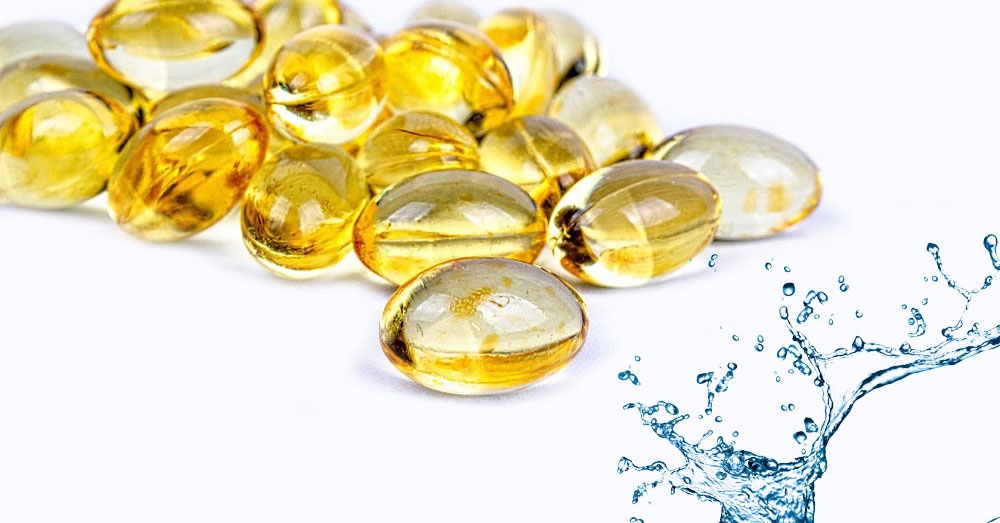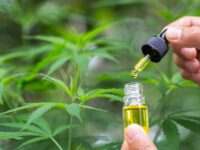5 Things You Should Know About Water Soluble CBD vs. CBD Oil:

Cannabidiol or CBD is made from the marijuana plant, but you don’t have to be scared because it won’t make you “high.” CBD acts differently from tetrahydrocannabinol (THC), another component of cannabis that is psychoactive. Instead of the psychoactive effects of THC, CBD has many health benefits.
CBD is beneficial in relieving stress, anxiety, depression, and panic attack. It can reduce the growth of cancerous cells, brain damage, diabetes, pains, and inflammation. It is also good at reducing aging and bodyweight.
Cannabidiols can be consumed in different forms. The most common Cannabidiols are CBD oil and water-soluble CBD.
CBD is generally oil-soluble, but it can be processed to become water-soluble. Sometimes, users find themselves in a dilemma of which form of the product to use. In this article, we will compare the two and show which one is better. But first, what is CBD oil, and what is water soluble CBD?
What is CBD Oil?
To make CBD oil, dissolve CBD (in the form of a marijuana plant flower or any other form) in oil. CBD oil is simply oil that contains Cannabidiols. It is a liquid that is not soluble in water, tastes like oil, and gets absorbed partially by the body when consumed.
What is Water-soluble CBD?
Water-soluble CBD contains precisely the same active component as CBD oil. However, its cannabidiol has been decomposed into smaller units that can dissolve in water. Not only is it soluble in water, but it is also readily absorbed by the body.
Water-soluble CBD and CBD Oil Compared:
As stated earlier, both water-soluble CBD and CBD oil have the same active ingredient; however, many differences still exist between them. Below are five important differences between CBD oil and water-soluble CBD.
1. Solubility:
Water-soluble CBD is soluble in water, while CBD oil is soluble in oil. Being soluble in water means water-soluble CBD can also be dissolved in drinks or added to food. CBD oil does not have this liberty.
2. Processing:
While CBD occurs naturally as an oil-soluble substance, it has to be processed to be water-soluble. The oil-soluble CBD is broken into smaller particles, followed by bio-encapsulation. However, this process does not mean water-soluble CBD is not natural. It is chemically the same as CBD oil but has the added advantage of having smaller cannabidiol particles soluble in water and wholly absorbed by the body.
3. Taste:
Each of the two has its unique taste, and they are quite different. It is difficult to say which one tastes better owing to individual preferences. CBD oil could taste better than water-soluble CBD, but not everybody loves the taste of the oil.
4. Consumption Mode:
CBD oil can be consumed orally. But because the digestion of oil has a constraint in the human digestive tract, oral ingestion of CBD oil is not effective. To increase the absorption rate, CBD oil can be placed under the tongue for about 60 to 90 seconds before ingestion.
CBD oil can also be vaporized and inhaled to bypass the digestive system and go straight into the blood. The other method is by bypassing both the digestive system and the blood completely. In that case, CBD oil can be applied to the skin and allowed to move straight to the cells.
Water-soluble CBD does not have any constraint. You can take it in any way convenient for you. It has been processed such that it does not have any problem with the digestive system and blood. You can mix it with drinks, spray it on food, or consume it directly.
5. Bioavailability:
When you take CBD, it must get absorbed by your body cells to be effective. Unfortunately, not all the CBD consumed gets to the needed cells. The ability of CBD to be absorbed by the cells is called bioavailability.
The body absorbs only 10 to 20 percent of CBD oil consumed by ingestion. The absorption rate can be increased to 60 percent if placed under the tongue for about 60 to 90 seconds before ingestion. Vamping CBD oil or applying it topically on the skin will also increase the absorption rate.
However, Water-soluble CBD is 100% digestible and gets absorbed 100% by the body. Hence oral consumption of water-soluble CBD may be up to 10 times more effective than taking a similar quantity of CBD oil.
CBD Tincture:
CBD tincture is another form of CBD that is similar to CBD oil. However, CBD tincture is CBD dissolved in alcohol rather than in oil, with other beneficial ingredients. This gives it a better absorption rate, taste, and preservation. CBD tincture can be oil-soluble or water-soluble CBD.
Also, other ingredients that are beneficial to the body can be added to CBD Tincture. At cbd2point0.com, water-soluble CBD tincture comes with additional ingredients such as Vitamin D3, Curcumin, Coconut extract, Ginger, Maple, and Tulsi.
What CBD 2.0 Offers:
CBD 2.0 is an American company that produces high- quality water-soluble CBD. Its CBD is obtained from organic hemp grown in the United States. The company’s products include the following:
- CBD Sleep Capsule.
- CBD Tincture.
- Extra Strength CBD Gel.
- Topical CBD For Pain.
Conclusion:
Cannabidiol is naturally oil-soluble, but it can be processed into a water-soluble form. Water-soluble CBD can be mixed with drinks or sprayed on food. It also gets digested completely and gets absorbed into the body better. Without any doubt, the CBD water-soluble has many advantages over the oil-soluble CBD.








